Application of Moulded Pulps
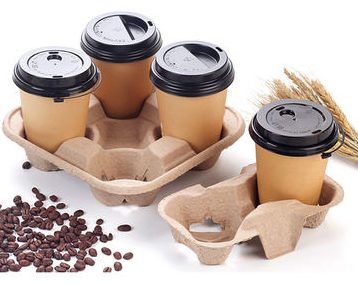
Moulded pulp products, also referred to as moulded pulp or moulded fibre products, are primarily used for the packaging of manufactured products and for food-related carriers, such as food containers and serving trays. Due to form and aesthetic limitations, moulded pulp products have mostly been limited to the egg tray market for many years.
However, demand is now increasing due to their sustainable qualities. Environmental, social, and economic concerns result in a growing search for more sustainable products and industrial processes. Moulded pulps consist simply of water and wood fibres (i.e. primarily cellulose), are renewable material and biodegradable, a perfect substitute for EPS (expanded polystyrene) foam.
Fast Food Tableware
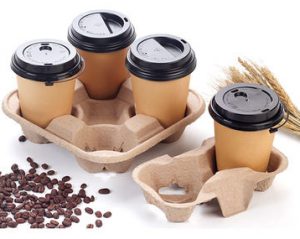
Pulp moulded tableware can be applied to dishware, bowls, fast food trays, cup carriers and more. These moulded fibre products are featured with elegant appearance, good stiffness, light weight and are easy to be stored and transported. They are water & oil proof, and can be frozen by refrigerator or heated up by microwave oven, which is suitable for modern eating habits and processing of fast food.
Egg Tray, Egg Clamshell
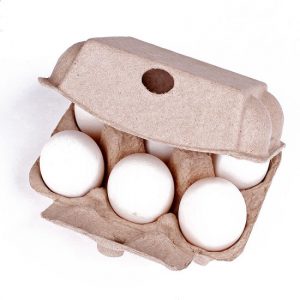
Due to the porosity of moulded pulp material, trays and clamshells used for packing eggs were widely used as it can provide good ventilation to preserve the freshness. The egg trays and clamshells are also shaped to complex structures with multiple cavities to support each egg with sufficient cushion to prevent cracking during transportation.
Fruit Tray
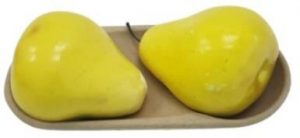
Moulded pulps are used for packing fruits like peach, pears, apples, oranges, pineapples and tomato. The packaging allows the fruits to dissipate respiratory heat, absorb evaporated water and suppress ethylene density, prolonging freshness of the fruits. The moulded pulp fruit tray also minimise collision during handling.
Fragile Goods Padding
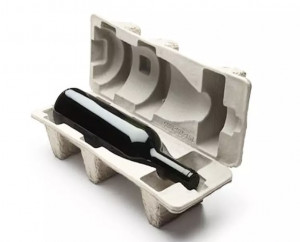
In the past, scrap papers or straws were used as padding of fragile goods such as wine bottles and ceramic articles, which are untidy and non-uniform. It affected product brand image and resulted in frequent breakages of fragile items. Paddings made from moulded pulps are simple to use when packing fragile items and projects better product image with sufficient and uniform shock absorption features.
Electric Appliance Cushioning
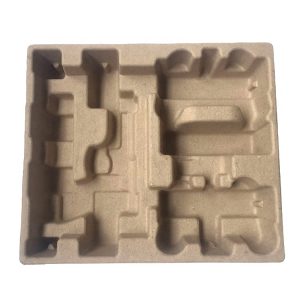
Traditionally, EPS are used for most electric appliance as cushioning. However, as the world is moving towards sustainability to protect our environment, EPS packaging are phasing out. Moulded pulp is rapidly replacing EPS as their packaging choice.
Agriculture Plant Growth
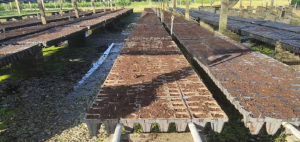
During the initial phases of plant growth from germination, seeding and vegetation, plastic seeding trays or pots are commonly used. Replacing plastic with biodegradable moulded pulps, transferring of sprouts or small plants to larger area is almost 100% yield. The entire seeding tray are transferred to larger area for next growth phase without the need to uproot the sprout or small plant.
Medical Containers
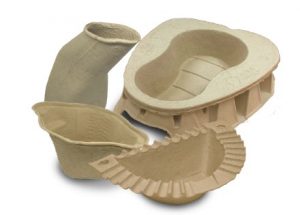
The biggest problem with traditional reusable medical containers are the high possibilities of contamination due to cross infection, burdening hospitals with unnecessary patient load. With single-use disposable medical moulded pulp products, it replaces plastic or metal utensils like urine bottle, bedpans, kidney dishes and trays to drastically reduce and prevent hospital acquired infections.
Conclusions
To protect the world we are living in, many countries have pledged to move towards sustainability to recycle waste to preserve resources. Materials that are harmful to our environment like plastics and foam that we encounter in our daily life are threatening our future generations. The shift towards green and sustainable living is a major driving force for the adoption of moulded pulps in various applications. Significant research, development and industrial efforts are in place to embrace recycling of waste to moulded pulps.
Article by Apex Pulp Pte Ltd published on 24 January 2022. For further enquiries, drop us an email at sales@apexpulp.com.

